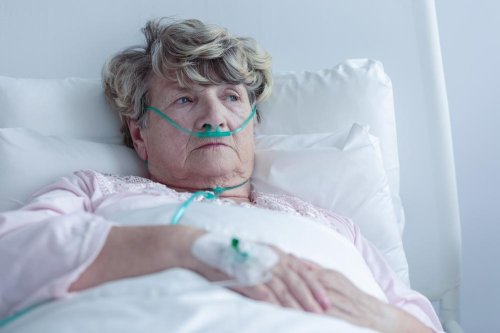Are Late in Life Surgeries Helpful or Harmful?

With aging comes a myriad of health issues, some of which are preventable, others due to our lifestyle and some by genetics or accident. Some of the health issues can be treated with medications, diet and exercise, but not all of them.
Sometimes, like it or not, we have no choice but to go under the knife, as the saying goes. Most older people hate and even fear the idea of any kind of surgery, no matter how minor it may be. But then you have those who seem addicted to plastic surgery and will spend many thousands of dollars to have plastic surgery in hopes of being able to retain some of their youthful appearance.
Even if I had the money, I would not waste it on such vanity. I should have died when I was 8-years old, again when I was 12-years old and again when I was 19-years old when I planned my own suicide, and 5 other times since then. At age 66, I figure that I have earned all of the white hair, wrinkles and other signs of aging, so why try to hide it?
Every surgery has a risk factor, but the older we get, the greater risk. Our bodies don’t respond to any form of trauma and we don’t heal as fast as we used to. Our skin gets thinner and loses some of its elasticity, making it harder for incisions to heal.
Is there a point in our ages when surgery of any kind becomes a risk rather than a benefit?
Would you be shocked to learn that nearly 1 out of every 3 Medicare patients will undergo a surgery in the last year of their life?
The question that begs to be answered is how many of these older folks died as a result of their surgery?
According to a report from Kaiser Health Network:
“Nearly 1 in 3 Medicare patients undergo an operation in the year before they die, even though the evidence shows that many are more likely to be harmed than to benefit from it.”
So why is this happening? According to the report from Kaiser:
“The practice is driven by financial incentives that reward doctors for doing procedures, as well as a medical culture in which patients and doctors are reluctant to talk about how surgical interventions should be prescribed more judiciously, said Dr. Rita Redberg, a cardiologist who treated Stanich when she sought care at the second hospital.”
“‘We have a culture that believes in very aggressive care,’ said Redberg, who at the University of California-San Francisco specializes in heart disease in women. ‘We are often not considering the chance of benefit and chance of harm, and how that changes when you get older. We also fail to have conversations about what patients value most’.”
“While surgery is typically lifesaving for younger people, operating on frail, older patients rarely helps them live longer or returns the quality of life they once enjoyed…”
Older people need to ask themselves if any surgery is really going to improve their quality of life or extend their life long enough to make the ordeal worth it? The statistics say the chances are pretty good that the surgery won’t really help in the way many older people would hope it would. It’s a hard decision and not one to take lightly. I know for me, I would just as soon avoid any risky surgery and if it means dying sooner, then that’s okay. I’ve lived in constant pain for the past 49-years, with the last 13 years having live with constant severe pain, so with my strong faith, I don’t fear death.








Recent Comments